Researchers and students from the University of Milano-Bicocca - including AMI student member Giulia Ghisleni - teamed up for an ambitious citizen science project, collecting more than 2,400 samples of the urban microbiome over four seasons.
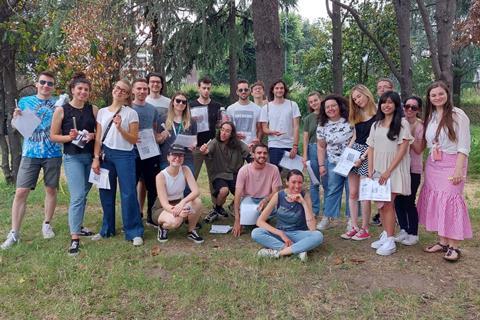
The Fantastic Microbes and Where to Find Them project demonstrated that non-expert participants can contribute high-quality data while gaining hands-on scientific training and microbiome awareness, according to AMI student member Giulia Ghisleni, a PhD student at the university.
Their international team has now launched a crowdfunding initiative that will enable them to take the next step in analysing the samples while engaging the local community in exploring the urban microbiome.
READ MORE: Microbes in Brooklyn Superfund site teach lessons on fighting industrial pollution
READ MORE: Millions of gamers accelerate knowledge of human microbiome via mini-game
“Microbes are critical to environmental and human health, yet their presence in urban environments is invisible and often underexplored. Scientific research on the microbiome is typically confined to labs and inaccessible to the public,” Giulia says.
“We set out to make microbiome science open, participatory, and educational by involving students in real-world research and exploring the microbial life of our cities.”
Four seasons
The team designed a public sampling initiative centered around four “Bicocca Sampling Days” in two public squares and a plant nursery in Milan. Eighty students deployed a standardized protocol to collect 2,429 microbiome samples across four seasons.
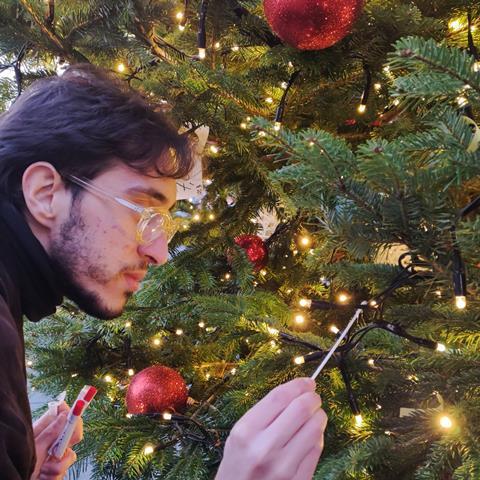
The project doubled up as a training opportunity: students gained practical experience in environmental sampling and citizen science. Compared to non-participants, they reported significantly greater confidence and knowledge in microbiome-related tasks.
“We found that citizen-driven sampling, when well-guided, can produce data at scale and quality comparable to professional efforts, while also transforming participants into active contributors to scientific discovery,” Giulia says.
Citizen science
“Building on this momentum, we launched Fantastic Microbes and Where to Find Them, a citizen science initiative that aims to bring microbial life into public awareness and microbiome research into public spaces.
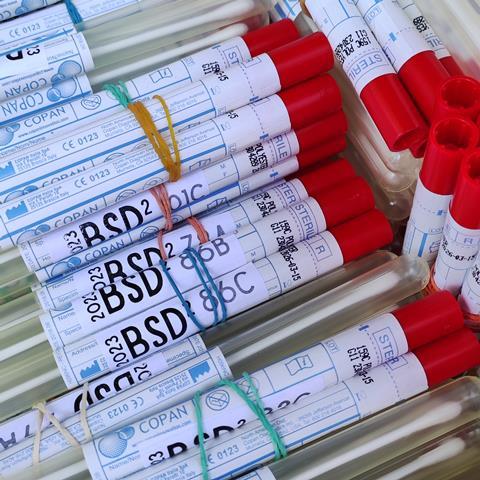
“This phase focuses on collecting funds via a crowdfunding approach to sequence microbial DNA from at least 200 collected samples, training students in microbial data analysis, and creating educational resources that communicate the value of microbes in our everyday environments.
”Our ultimate goal is to turn cities into open-air laboratories, where science is participatory, accessible, and driven by the curiosity of local communities.”
Bringing the lab into the city
The initiative shows that microbiome research doesn’t have to be locked in the lab, Giulia says.
“It can be scaled, democratized, and woven into education. Citizen science can empower communities to understand the invisible ecosystems around them, while contributing real, usable data to the scientific community. It’s a new way to connect people to science and to the hidden biodiversity of their own environments.”

Giulia admits she was surprised by both the incredible enthusiasm of the students and the sheer scale of data they were able to gather in such a short time.
“We were also struck by how much students’ self-perception as ‘scientists’ improved through the experience, highlighting how powerful experiential learning can be,” she says.
Crowdfunding phase
“Now that the project has entered its crowdfunding phase, I’m equally surprised, and deeply grateful, for the support we’re receiving. We’ve already reached half of our funding goal (if we collect 5000EUR, Thales Alenia Space and A2A will double it with an additional €5,000 contribution), and it’s been heartening to see how many people not only recognize the importance of studying the microbiome, but are willing to support it. It shows that there’s a growing public appetite for open, inclusive science.
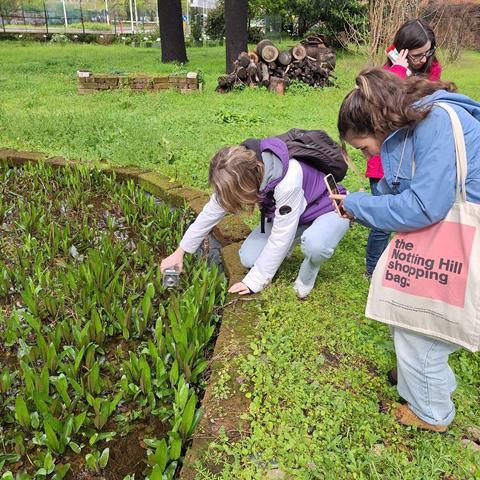
“We are currently preparing to sequence the microbial DNA from the collected samples and train students in microbiome data analysis and scientific writing. In the future, we hope to expand the initiative to other cities, build international collaborations, and develop open-source educational tools based on our model. To do so, we need all the possible support.”
The international team has launched a crowdfunding campaign to:
- Sequence environmental samples collected by students across Milan
- Provide hands‑on microbiology workshops
- Engage local communities in exploring the urban microbiome
Partnerships and support
The project is led by an interdisciplinary team from the University of Milano-Bicocca, in collaboration with Simbio Onlus (a biodiversity-focused non-profit in Italy) and KBase, a U.S. Department of Energy platform for bioinformatics and open-access science. The initiative is also supported by Thales Alenia Space and A2A, who will match crowdfunding contributions if the funding goal is met.
The overall project is conducted within the MUSA – Multilayered Urban Sustainability Action – project, funded by the European Union – NextGenerationEU, under the National Recovery and Resilience Plan (NRRP) Mission 4 Component 2 Investment Line 1.5: Strengthening of research structures and creation of R&D “innovation ecosystems”, set up of “territorial leaders in R&D”.
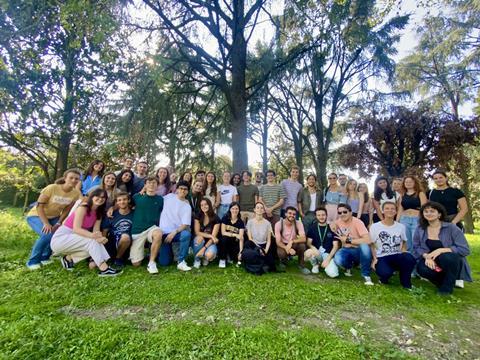
This work is also supported by the Society for Experimental Biology (SEB) Educational Research and Development Grant.To find out more about Fantastic Microbes and Where to Find Them, visit the website at https://www.ideaginger.it/news/microbi-fantastici-e-dove-trovarli/fantastic-microbes-and-where-to-find-them-english-version.html
Topics
- A2A
- Applied Microbiology International
- Bicocca Sampling Days
- citizen science
- Community
- Fantastic Microbes and Where to Find Them
- Giulia Ghisleni
- Healthy Land
- KBase
- Multilayered Urban Sustainability Action
- Original
- People News
- Science Communications
- Thales Alenia Space
- UK & Rest of Europe
- University of Milano-Bicocca
- urban microbiome







No comments yet